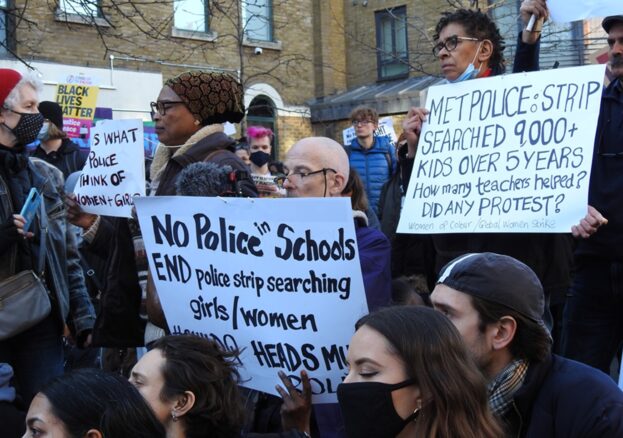
A recent analysis by the Runnymede Trust of Home Office data reveals that Black individuals, particularly children, face disproportionate strip searches by police forces across England and Wales. The data indicates that Black children are 6.5 times more likely to be subjected to strip searches compared to their white counterparts, while Black adults are 4.7 times more likely than white adults to experience the same.
This report coincides with a Home Office consultation on the use of strip searches against minors, prompted by the controversial case of Child Q. Child Q, a Black girl, was strip searched while on her period at her school in Hackney, East London, without an appropriate adult present, after being wrongfully accused of smelling of cannabis.
Key findings from the data analysis include:
- In London, Black children are 5.3 times more likely than white children, and Black adults 3.5 times more likely than white adults, to be strip searched by police.
- Nearly half (47.7%) of strip searches conducted on children in London involved Black children, despite them comprising only 16.9% of the city’s child population.
- The Metropolitan Police were responsible for approximately one-third of all strip searches in England and Wales in the year leading up to March 2023.
- In Sussex, Black individuals are 18 times more likely to be strip searched than white individuals. The analysis identified ten police forces where Black people are strip searched at a rate ten times higher than white people.
The Runnymede Trust highlights the traumatic and humiliating nature of strip searches, especially for children, which can result in long-term consequences such as anxiety, depression, and lower educational attainment. The organisation is calling for the immediate revocation of police powers to strip search minors.
The trust emphasises that addressing broader socio-economic issues, such as poverty, inequality, poor quality housing, failing education systems, and increasing access to social services, is more effective in reducing societal harm than stringent “tough on crime” policies like strip searches. They advocate for a shift towards addressing the root causes of criminalised behaviour through meaningful investment in community-led initiatives focused on healthcare, education, and accessible early years and youth services.
Dr. Shabna Begum, CEO of the Runnymede Trust, stated, “Strip searches are inherently violent, humiliating, and harmful, especially for children. As the general election looms, we cannot continue to be told by politicians across the political spectrum that so-called ‘tough on crime’ policies are the solution to social problems. Strip searching is such an invasive procedure, and when deployed with this level of racialised disproportionality, the harm reaches way beyond the individual child or person. If we actually want to build safer communities and safeguard our children, we need to invest in our social infrastructure and ensure people have the opportunities and resources to thrive and flourish.”
